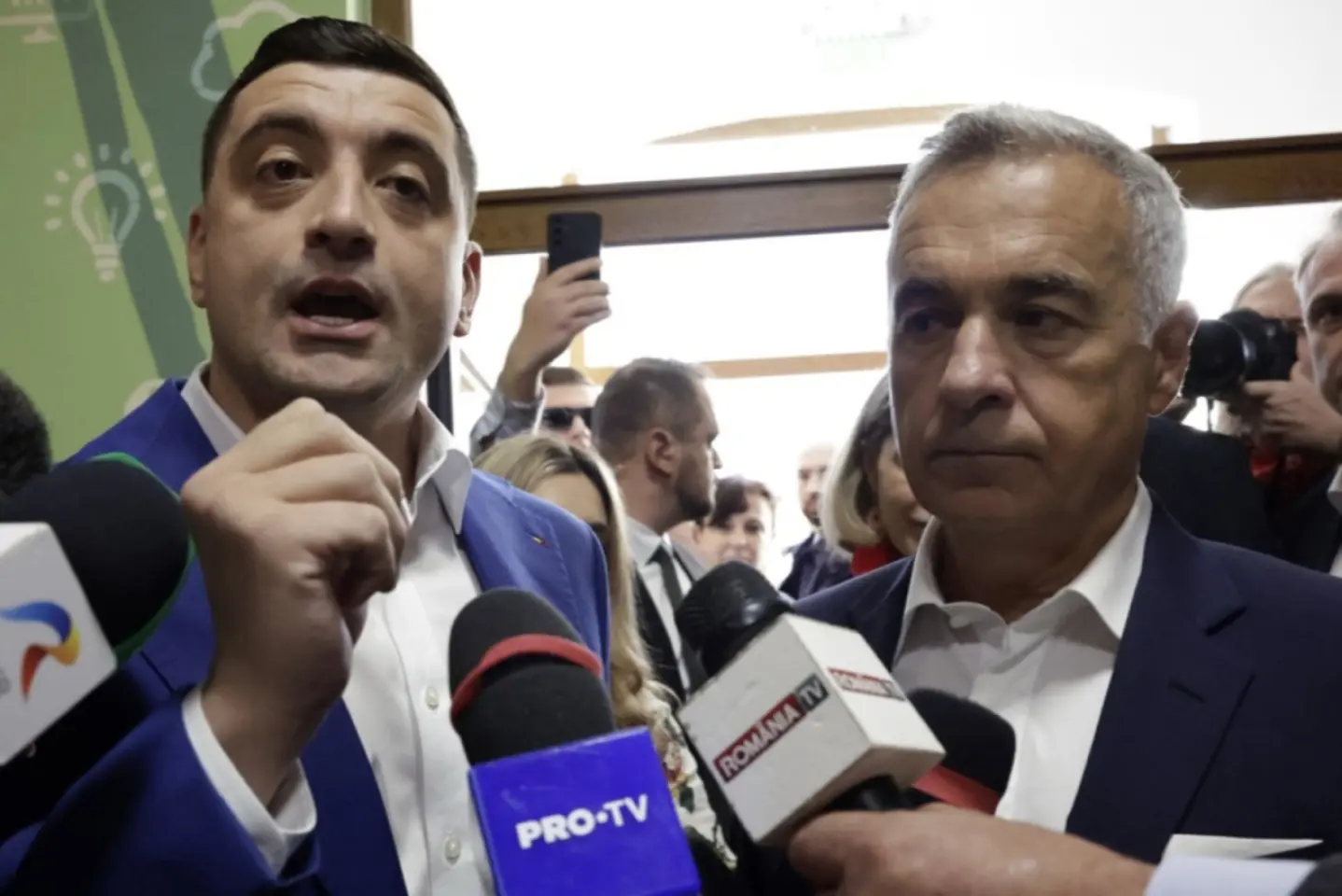
The no-confidence vote against the Commission has no chance of passing, but following the efforts of conspiracist and lawyer Gheorghe Piperea, von der Leyen will now have to answer the questions of MEPs.

The population's energy costs will double due to the economic policies adopted by the new government and President Dan, claims the sovereignist opposition.

The AUR party should be in power because it ranks first in the polls, sovereignist propaganda writes.

The French parliament has passed the law on assisted suicide and euthanasia, forcing the country's population to die, according to an AUR MEP.

The political evolution of (Neo)Legionarism, from pocket political parties, such as those created by Marian Munteanu, to organizations like The New Right (Noua Dreaptă) – the connecting link between (Neo)Legionarism and sovereigntism – and politicians who frequently make the front page, such as George Simion, Călin Georgescu and Diana Șoșoacă.

George Simion made a name for himself as an anti-establishment activist and a militant for the unification of Romania and the Republic of Moldova, first with “Noii Golani” (The New Rascals), then with “Acțiunea 2012” (Action 2012). His collaborators from back then claim that the leader of AUR manipulated and lied to them in order to achieve his goals. They accuse Simion of violence, using minors and the destruction of the unionist movement. Others say that he would disappear for days, only to return with ready-made plans for future actions.

George Simion wants to take over the MAGA image, and his good score in the presidential election has brought him to the attention of European extremists. However, a sovereignist policy would spell economic costs and political isolation for Romania.

Romanians in the Republic of Moldova overwhelmingly voted for Nicușor Dan, even though the ruling party, PAS, supported Crin Antonescu. Directly threatened by Moscow, the Moldovans rejected George Simion who, although he declared himself a unionist, is perceived as pro-Russian across the Prut. On the other hand, George Simion got most of the votes of the Romanian diaspora in Europe, which until recently preferred candidates and parties defined as pro-European and reformist.

Romanian extremists seem to believe that the return of Donald Trump is bound to bring them more voters and legitimize a type of discourse marked by populism and false narratives. They also hope that Trump will help them get the power. It is a kind of oxymoronic reasoning that shows that, in fact, Romanian extremists do not even understand the meaning of the word they adopted to define themselves - "sovereignism".

Narratives identical or similar to those fostered by Russian propaganda have also been circulated in the current election campaign in Romania. They transpired not only in the rhetoric of far-right parties, which for years have internalized such theses, but also in the statements of certain politicians aligned to Romania's pro-Western course.

There are no anti-EU, anti-NATO or far-right parties in Romania, claims Ion Cristoiu, a well-known promoter of narratives of Russian origin.

Pro-European right-wing parties in Romania grabbed large numbers of votes in Moldova, while the Romanian diaspora opted for sovereigntist forces. Experts believe that sovereigntists were rejected because they are hostile to Ukraine.

A recent report published by the Russian Ministry of Foreign Affairs criticizes Romania’s “neo-Nazism” and describes as state policies the actions of certain pro-Russian extremists, including figures praised and cited by Kremlin propaganda.

The rise of the far-right in certain EU Member States will be of little consequence in the coming years, as the European Parliament and the European Commission remain under the influence of center factions. New movements are likely to emerge in the long-term that might change the configuration of the EU.

Private banks make money at the expense of Romanians, whom they refuse to help by giving them loans, claims a publication owned by a sovereignist, extremism-oriented party.

Europeans’ freedom of movement will be restricted in the name of combating climate change, an MP with the far-right AUR party claims.

“All that was and is the property of the Romanian nation must be returned within the borders of the same state”, said Claudiu Târziu, the chairman of AUR’s National Council. To Russian propaganda, Târziu’s statement is solid gold.

The colonization of Romania, the war in Ukraine, conspiracy theories related to the "sanitary dictatorship" and climate change have been the favorite topics for most of the year’s false narratives.